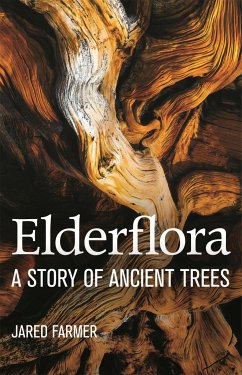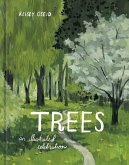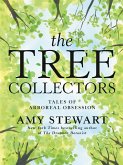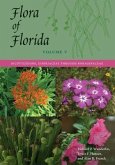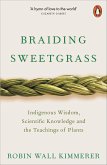Winner of the Jacques Barzun Prize in Cultural History
'A masterful blend of natural and human history . . . Farmer's Elderflora aren't just amazing old organisms, but a backdrop against which human drama, hubris and decency play out.' - New Scientist
'Fascinating' - The Observer
Combining rigorous research with lyrical writing, Elderflora chronicles the complex roles ancient trees have played in the modern world and illuminates how we might need old trees now more than ever.
Humans have always revered long-lived trees. But as historian Jared Farmer reveals in Elderflora, our respect took a modern turn in the eighteenth century when naturalists embarked on a quest to locate and precisely date the oldest living things on earth. The new science of tree time prompted travellers to visit ancient specimens and conservationists to protect sacred groves. Exploitation accompanied sanctification, as old-growth forests succumbed to imperial expansion and theindustrial revolution.
Taking us from Lebanon to New Zealand to California, Farmer surveys the complex history of the world's oldest trees, including voices of Indigenous peoples, religious figures, and contemporary scientists who study elderflora in crisis. In a changing climate, a long future is still possible, Farmer shows, but only if we give care to young things that might grow old.
'A magisterial study of arboreal longevity . . . like the outstretched limbs of a luxuriant elm, Farmer's narrative extends over a broad range of social and scientific issues.' - Natural History
'A masterful blend of natural and human history . . . Farmer's Elderflora aren't just amazing old organisms, but a backdrop against which human drama, hubris and decency play out.' - New Scientist
'Fascinating' - The Observer
Combining rigorous research with lyrical writing, Elderflora chronicles the complex roles ancient trees have played in the modern world and illuminates how we might need old trees now more than ever.
Humans have always revered long-lived trees. But as historian Jared Farmer reveals in Elderflora, our respect took a modern turn in the eighteenth century when naturalists embarked on a quest to locate and precisely date the oldest living things on earth. The new science of tree time prompted travellers to visit ancient specimens and conservationists to protect sacred groves. Exploitation accompanied sanctification, as old-growth forests succumbed to imperial expansion and theindustrial revolution.
Taking us from Lebanon to New Zealand to California, Farmer surveys the complex history of the world's oldest trees, including voices of Indigenous peoples, religious figures, and contemporary scientists who study elderflora in crisis. In a changing climate, a long future is still possible, Farmer shows, but only if we give care to young things that might grow old.
'A magisterial study of arboreal longevity . . . like the outstretched limbs of a luxuriant elm, Farmer's narrative extends over a broad range of social and scientific issues.' - Natural History

